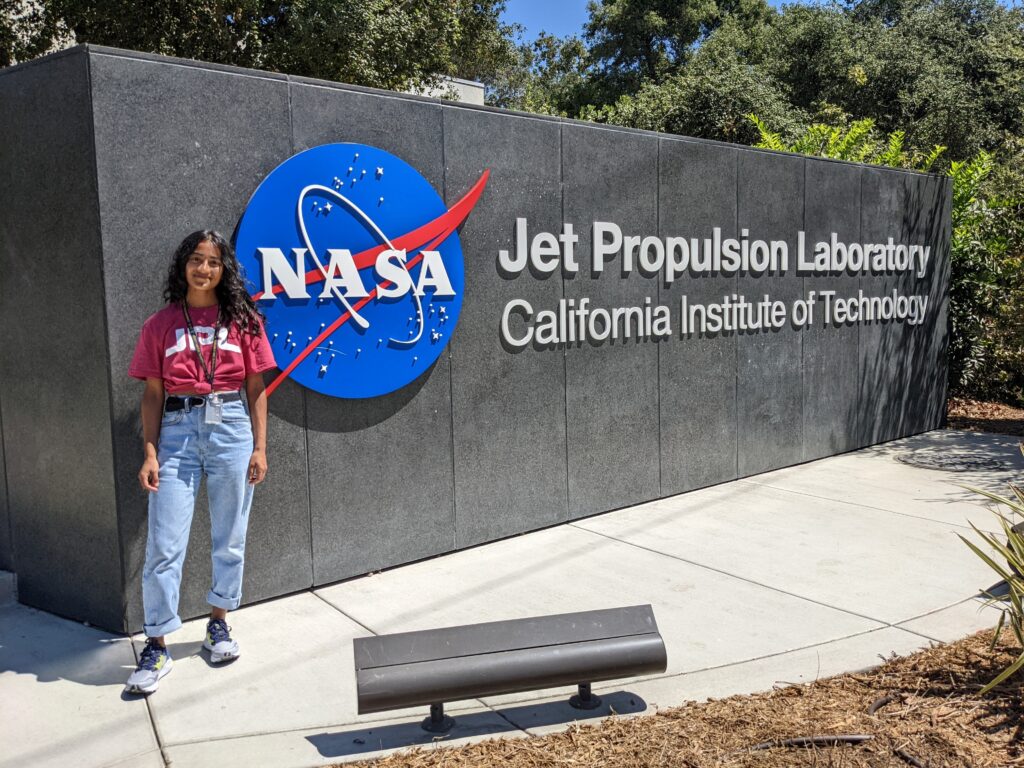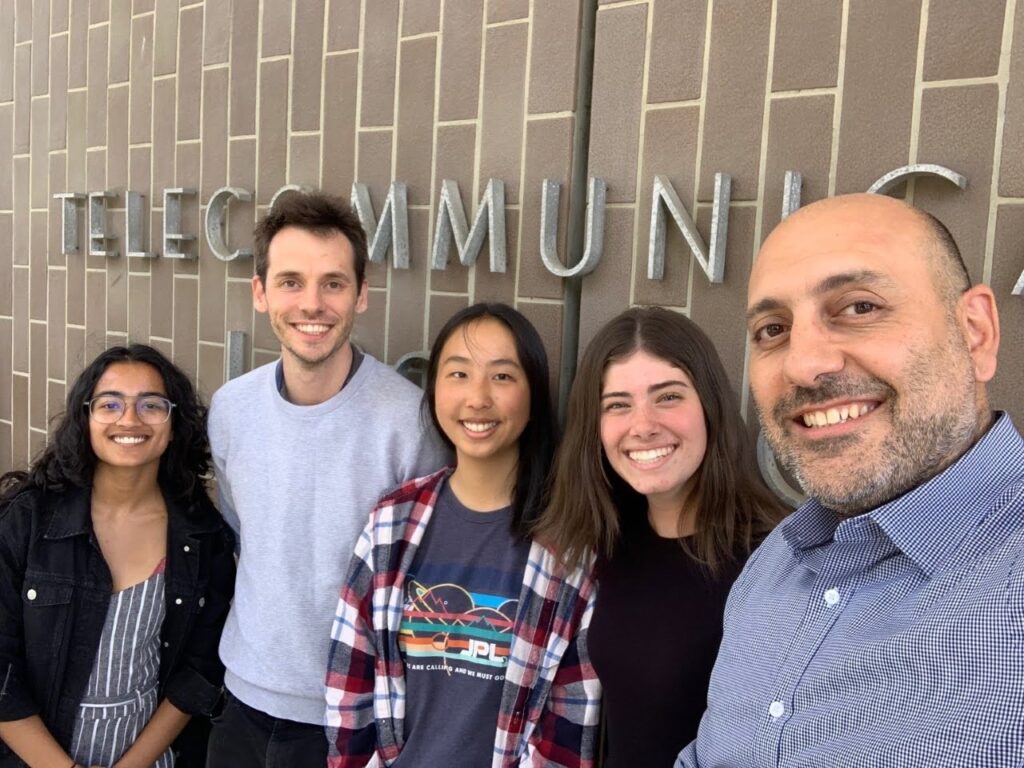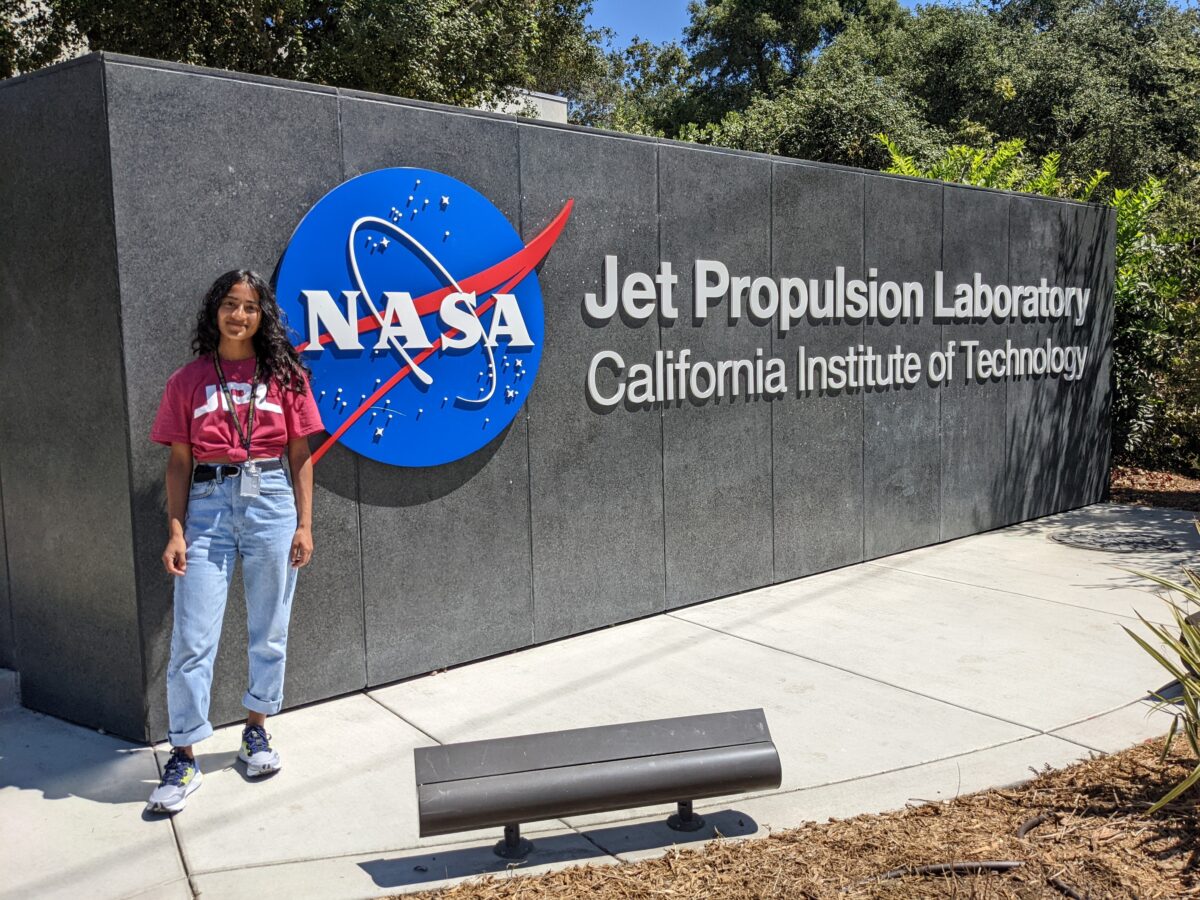Researcher at Oxford University (Oxford, England) and Strathclyde University (Glasgow, Scotland), visiting Dr. Makan Mohageg at NASA’s Jet Propulsion Laboratory

This summer I participated in the JVSRP (JPL Visiting Student Research Program) at NASA’s Jet Propulsion Laboratory (JPL) in California with the support of INSQT’s research exchange program. For a month, I joined the Optical and Quantum System Engineering group to work on the Deep Space Quantum Link, a project that aims to conduct experiments using quantum optical links in deep space for the purposes of demonstrating their use for quantum communication and testing fundamental physics.
The group’s work on satellite-based quantum communication was of great interest to me as my master’s thesis had been focused on this idea and so I was delighted to be accepted onto this program under the mentorship of Dr Makan Mohageg. Quantum communication uses fundamental particles, typically photons to transmit information, however for it to be a useful means of communication, methods to mitigate the high losses faced by encoded information when transmitted over long distances are required. A possible solution to this problem is the integration of quantum memories, which allow the storage of a quantum state, into communication architectures.
The goal of my project was to mature a theoretical concept using quantum memories for spacecraft-based quantum communication and to quantify the advantage a novel system would give to various communication protocols by simulation and derivation of analytical expressions for its behaviour. Working on this project allowed me to use the skills and techniques I had learned while completing my master’s thesis and apply them in the context of a space mission in an extremely supportive and engaging group. The initial results showed some advantages and I hope to continue working on this concept in collaboration with the team at JPL to further develop the system and analyse its performance for implementing various quantum communication protocols.

